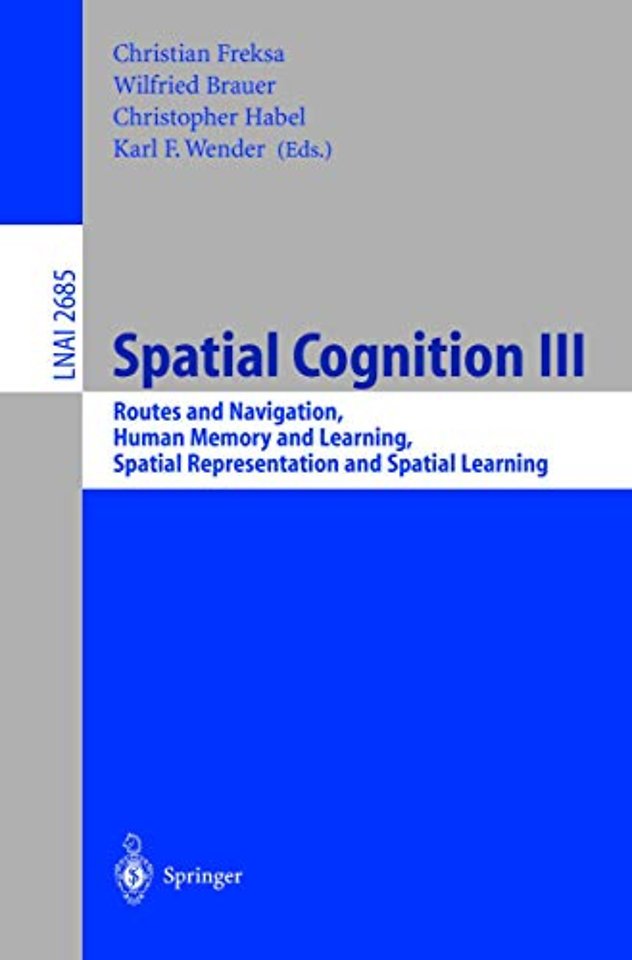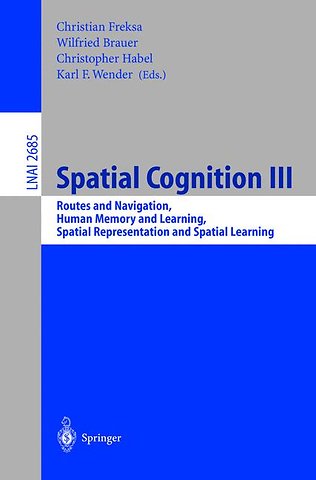Spatial Cognition III
Routes and Navigation, Human Memory and Learning, Spatial Representation and Spatial Learning
Paperback Engels 2003 2003e druk 9783540404309Samenvatting
This third volume documents the results achieved within a priority program on spatial cognition funded by the German Science Foundation (DFG).
The 23 revised full papers presented went through two rounds of reviewing and improvement and reflect the increased interdisciplinary cooperation in the area. The papers are organized in topical sections on routes and navigation, human memory and learning, spatial representation, and spatial reasoning.
Specificaties
Lezersrecensies
Inhoudsopgave
Rubrieken
- advisering
- algemeen management
- coaching en trainen
- communicatie en media
- economie
- financieel management
- inkoop en logistiek
- internet en social media
- it-management / ict
- juridisch
- leiderschap
- marketing
- mens en maatschappij
- non-profit
- ondernemen
- organisatiekunde
- personal finance
- personeelsmanagement
- persoonlijke effectiviteit
- projectmanagement
- psychologie
- reclame en verkoop
- strategisch management
- verandermanagement
- werk en loopbaan

